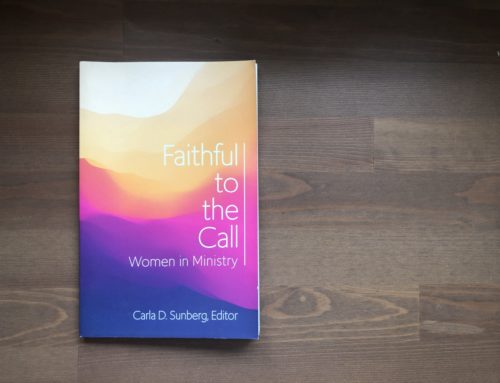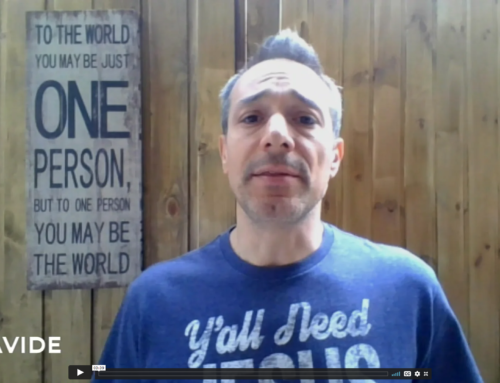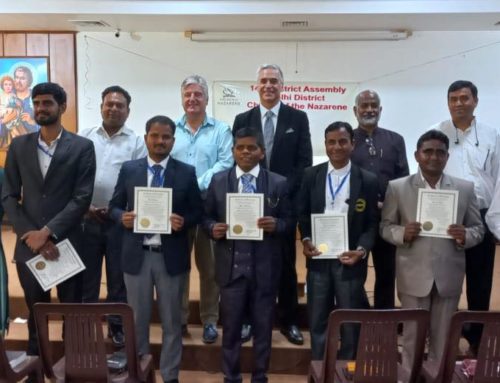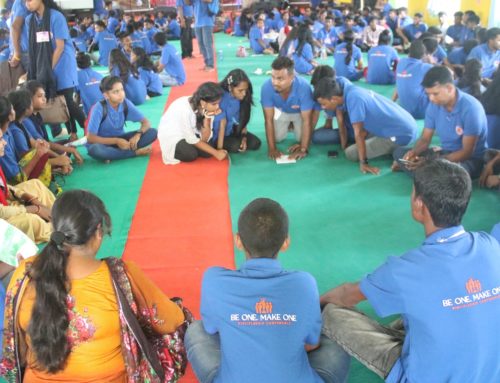Büsingen, Germany – “I believe this is one of the greatest moments in the history of Christianity. God has chosen you and God has chosen me…to serve this present age,” began Leonard Sweet, one of the featured speakers at the European Nazarene College (EuNC) annual Leadership Conference, January 17-20.
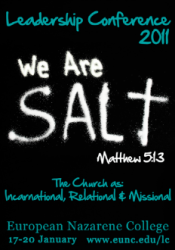 “By and large, the church has decided it doesn’t like this moment,” he added, during the first of his eight one-hour sessions.
“By and large, the church has decided it doesn’t like this moment,” he added, during the first of his eight one-hour sessions.
About 150 people attended the conference, which was themed, “We are Salt: The Church as Incarnational, Relational and Missional.” The theme was selected from Matthew 5:13 where Jesus says, “You are the salt of the earth.”
Pastors, missionaries, students, lay people and district superintendents came from four fields in the Eurasia region: Northern Europe, Western Mediterranean, Southeast Europe and the Commonwealth of Independent States.
As the keynote speaker, Sweet spoke from his extensive work as a futurist who studies culture and the church, having published more than 40 books on related topics. Peer-voted “One of the 50 Most Influential Christian Leaders in America” in Church Report, he is also an ordained United Methodist clergyman who teaches at Drew Theological School in Madison, New Jersey.
Besides Sweet, three other speakers included Jon Middendorf, the senior pastor at Oklahoma First Church of the Nazarene in the United States; Gustavo Crocker, director of the Eurasia Region, and Jesse Middendorf, one of six general superintendents over the Church of the Nazarene denomination. Crocker and Middendorf gave the devotionals.
Together, they challenged attendees to embrace what it means to be the Church in this present age and the central role of Jesus in “being salt.” The conference lifted up Jesus as the source of our “flavor,” and tackled how the church can find new ways to be the “salt” of this new generation.
They addressed how the Church can sometimes create its own mission rather than embrace God’s mission, which is best expressed in Jesus. The center of the Church’s ministry and life is to lift up Jesus and to have a transformational relationship with God, through Jesus.
“It’s all about a love for Christ,” said Sweet. “When you’re in love with Jesus, there’s passion…You’re not in love with justice or a principle; you’re in love with a person. We’ve got to build up people’s love for Jesus and rediscover their first love. A lot of this stuff will take care of itself. The church needs a revival. I don’t want people to turn to the culture. I want them to turn to Jesus.”
Sweet called on the Church to embrace this moment in history, a moment he calls the “Google world,” in contrast to the previous five centuries, which were defined by the printing press and the written word – the “Gutenberg world.”
“If you’re going to be missionaries to this world, you need to learn the language,” he concluded. “We’re not speaking the language that is native to a Google world.”
Priscila Pereira, who serves on the worship team at Lisboa Church of the Nazarene, could identify with Sweet’s message. She recently completed a bachelor’s degree in New Technology of Communication, and is now starting a degree in theology through EuNC.
“It is good to know the leaders of the churches understand we need to go into the world with all these new technologies,” she said. “In Portugal we have a lot of people that love multimedia and we have a ministry of image and communication. We are thirsty to share more. Sometimes we feel frustrated at the way the parents and leaders talk about the Gospel…they need to change and reformulate their minds and sometimes they don’t understand that. Sometimes they need someone the same age as them to tell them.”
For Simona Berdowski, minister for the Church of the Nazarene in Poland, Sweet’s message was an “intellectual feast.” She liked it when Sweet said that we don’t get to choose our “moment.” She believes that we should be thankful for the moment God gives us and think of it as a gift, rather than a burden.
Teanna Sunberg, who serves as a missionary in the Southeast Europe (SEE) Field with her husband, Jay Sunberg, believed that Sweet opened up discussions about topics that the church needs to be wrestling with, such as new paradigms for how we look at the world and how we view our ministry and ourselves within that world.
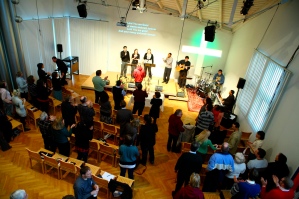 “We in Europe are pretty far ahead; so, in some sense we have already had these discussions,” she said. “However, these are discussions that we need to keep having and he (Sweet) has given us another opportunity to do that.”
“We in Europe are pretty far ahead; so, in some sense we have already had these discussions,” she said. “However, these are discussions that we need to keep having and he (Sweet) has given us another opportunity to do that.”
She especially liked Middendorf’s message on how our functioning image of God shapes our day-to-day faith and the tone of our ministry.
“With Jon it is evident that the Holy Spirit has really led him and there is a sensitivity to speak what the Lord has put on his heart,” she said. “It is obvious from people’s comments and responses that he has spoken about things that people really needed to hear about.”
Teanna was struck by the visual metaphor Middendorf presented of a loving father taking “whatever posture is needed” for us to be who He created us to be.
“This message is very relevant for our ministry across South East Europe and beyond – to help us have a good, healthy image of God,” added Jay, who also serves as strategy coordinator for the SEE Field.
Middendorf’s sermon gave him an opportunity to examine what his different images of God are: Are they healthy images and are they encouraging healthy ministry?
“We need to put aside our unhealthy image of God and have an image of God where He is breathing into us and we are so dependent upon Him,” said Jay. “This helps us in ministry everywhere.”
